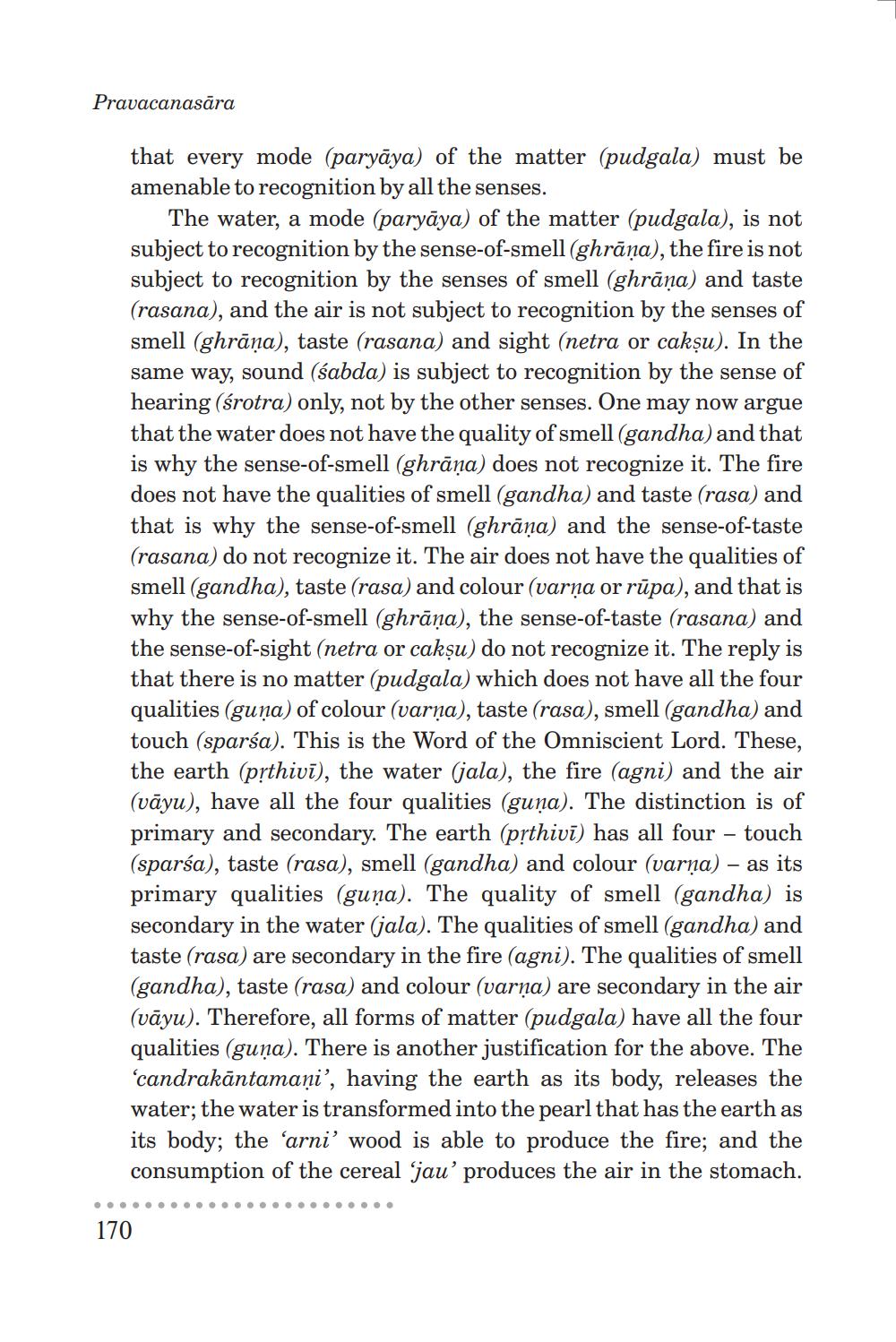________________
Pravacanasāra
that every mode (paryāya) of the matter (pudgala) must be amenable to recognition by all the senses.
The water, a mode (paryāya) of the matter (pudgala), is not subject to recognition by the sense-of-smell (ghrāņa), the fire is not subject to recognition by the senses of smell (ghrāņa) and taste (rasana), and the air is not subject to recognition by the senses of smell (ghrāņa), taste (rasana) and sight (netra or cakṣu). In the same way, sound (sabda) is subject to recognition by the sense of hearing (śrotra) only, not by the other senses. One may now argue that the water does not have the quality of smell (gandha) and that is why the sense-of-smell (ghrāņa) does not recognize it. The fire does not have the qualities of smell (gandha) and taste (rasa) and that is why the sense-of-smell (ghrāņa) and the sense-of-taste (rasana) do not recognize it. The air does not have the qualities of smell (gandha), taste (rasa) and colour (varna or rūpa), and that is why the sense-of-smell (ghrāņa), the sense-of-taste (rasana) and the sense-of-sight (netra or cakṣu) do not recognize it. The reply is that there is no matter (pudgala) which does not have all the four qualities (guņa) of colour (varņa), taste (rasa), smell (gandha) and touch (sparsa). This is the Word of the Omniscient Lord. These, the earth (prthivī), the water (jala), the fire (agni) and the air (vāyu), have all the four qualities (guņa). The distinction is of primary and secondary. The earth (prthivī) has all four – touch (sparsa), taste (rasa), smell (gandha) and colour (varņa) – as its
rimary qualities (guna). The quality of smell (gandha) is secondary in the water (jala). The qualities of smell (gandha) and taste (rasa) are secondary in the fire (agni). The qualities of smell (gandha), taste (rasa) and colour (varņa) are secondary in the air (vāyu). Therefore, all forms of matter (pudgala) have all the four qualities (guņa). There is another justification for the above. The 'candrakāntamaņi”, having the earth as its body, releases the water; the water is transformed into the pearl that has the earth as its body; the ‘arni' wood is able to produce the fire; and the consumption of the cereal “jau' produces the air in the stomach.
170




